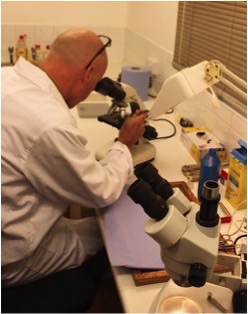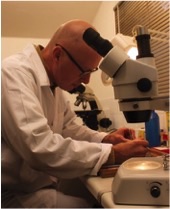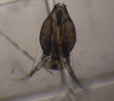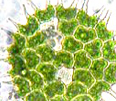





Our biological services cover all aspects of freshwater biology, from identification of blue green algae to prymnesium identification. We conduct zooplankton species assessment and invertebrate surveys for the production of BMWP and ASPT scores.
Our associate biologists can respond quickly to requests for surveys and analysis and also offer an analysis only service where the client sends samples to our Leicestershire laboratory and receives the report of the findings by return. We are fully equipped to deal with the biology needs of the Water Industry sector
Macro Invertebrate and Non Native Species
Biological work also covers aspects of aquatic ecology with crayfish species, from assessment of native white clawed populations to work on invasive non-natives such as signal or turkish crayfish. We are Natural England licensed crayfish surveyors.

Our experience in identification of non native species is employed when identifying populations within reservoirs and lakes owned or controlled by the Water Industry sector. We conduct presence/absence and population surveys and undertake eradication or population limiting works for some species. Our field staff have completed training of all modules of the Non Native species Secretariat and are experienced in biological control and reducing risks of spreading non natives species.
Zooplankton
Zooplankton are microscopic grazers of the planktonic community and a fundamental component of freshwater ecosystems. They are responsible for exerting grazing pressure on the algal community. Without this grazing pressure, algal communities would be left unchecked and populations could explode, contributing to increased turbidity and reducing water clarity, adversely affecting macrophyte growth and reducing habitat diversity for both invertebrates and fish. We undertake zooplankton species identification and population density counts. We also carry out diversity index analytics.
Invertebrate sampling
The invertebrate community forms an important element of aquatic ecosystems. Invertebrates are consumers and detritivores, predators and prey. Water quality can be assessed by their presence, using species composition and density within a waterbody and applied to metrics such as BMWP or ASPT. They are a useful predictor of fish activity and the composition of the fish assemblage.
Phytoplankton (algae)
Algal populations, present within all waterbodies are the fundamental component of aquatic ecosystems. They consume nutrients in the water column, in turn providing food for zooplankton which graze on them. The laboratory carries out species identification as well as density cell counts. We undertake commissions from both fresh water and estuarine environments.
Invertebrate assemblage composition can be used as an indicator of pollution, particularly chronic pollution events. Invertebrates are also an important food source for most fish species. Many terrestrial invertebrates start out life under the water, before completing their life cycle above the surface.
Our laboratory undertakes species identification and density estimates and employs a variety of suitable industry standard metrics such as BMWP and ASPT scores etc for inclusion into reports, depending upon the clients requirements.
